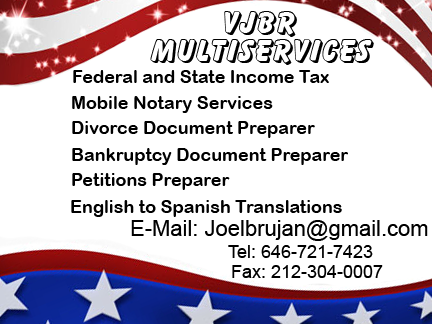First is there a difference Between Attorney and a Lawyer? are they the same?
The simple answer is not, they are not the same even when they have the same functions.
Lawyer Just practice the law.
Attorney handle business for a client or somebody else.
A Lawyer became an attorney at the moment he get a client or do business for anybody else.
WHAT IS A NOTARY PUBLIC? Notaries public in New York are commissioned by the Secretary of State of New York after passing a short examination in law and procedure and submitting an application for appointment accompanied by the proper fees. A notary's commission is received from and kept on file with the county clerk of the county in which they reside or do business, but notaries are empowered to actually perform their duties anywhere in the state.
New York notaries are empowered to administer oaths and affirmations (including oaths of office), to take affidavits and depositions, to receive and certify acknowledgments or proofs (of execution) of deeds, mortgages and powers of attorney and other instruments in writing. Notaries may also demand acceptance or payment of foreign and inland bills of exchange, promissory notes and obligations in writing. Other powers include required attendance at the forced opening of an abandoned safe deposit box to observe the opening and conduct and provide a written inventory of the contents.
New York notaries may not issue certified copies of publicly recordable documents (i.e. birth certificate, marriage certificate, bankruptcy discharge, divorce decree, etc.); notably (as emphasized by official publications) they may not certify copies of documents (for instance, "I hereby certify that this is a true and correct copy...," is beyond the authority of a New York notary). However, a notary may issue a notarial copy certification in which the document custodian signs and swears to the authenticity of the original and facsimile document. New York notaries, including attorney-notaries, may not solemnize marriages in a civil ceremony. In New York state, a notary is not required for a testator to write or execute a last will and testament. New York law requires two witnesses, who do not need to be notaries, to attend and observe the will signing ceremony; subsequent to the execution by both testator and subscribing witnesses, these witnesses may then swear to the mental competence of the testator and other factors associated with the execution ceremony. A notary may, upon request, take a "self-proving affidavit" or an "affidavit of execution" sworn to and signed by the testator and the two (subscribing) witnesses, which will serve as formal proof and testimony of the proper will execution in the probate process at the county surrogate.
WHERE DO YOU GET A NOTARY PUBLIC?
One of the main questions are.
IS THERE A NOTARY PUBLIC NEAR ME?
Well usually yes, there is a Notary Public Near You.
the first place to look for is the state court system at the county clerk office.
IS THERE A NOTARY PUBLIC NEAR ME?
Well usually yes, there is a Notary Public Near You.
the first place to look for is the state court system at the county clerk office.
other places to look for are UPS Stores, Real State agencies, Multiservices offices, Banks and Even Police Precincts.
but in this online and digital time, nobody got time just to be going around looking for anybody, now the fastest way is using the cellphone and the internet.
WHERE IS A NOTARY PUBLIC LOCATED?
Type 24 Hours Notary Public if you are willing to go there and the notary accept walking.
Type 24 Hours Mobile Notary Public if you want the Notary Public go to you and just wait for him/her to come to your designated place.
If you need a 24 Hours mobile notary public or just have a question, we will be glad to help you.
call us at 646-721-7423
or
Email us at notary@vjbrmultiservice.com




